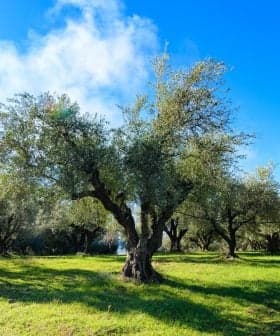Greek Event on Hospitality and New 'Cruet Ban'
The benefits of standardized olive oil in the food service industry will be highlighted during a November 15 event in Athens.
The Association of Hellenic Industries for the Standardization of Olive Oil and the Panhellenic Federation of Restaurants will host an event in Athens on November 15 to discuss the mandatory use of standardized and sealed olive oil in the food service industry, as part of Olive Oil Days 2017. The new law aims to protect and promote the quality of olive oil, benefitting consumers and the market, and is expected to be implemented in other olive oil producing countries.
The Association of Hellenic Industries for the Standardization of Olive Oil (ΣΕΒΙΤΕΛ) and the Panhellenic Federation of Restaurants and Associated Professions (ΠΟΕΣΕ) will host an event, “The Olive Oil in the food service industry” on November 15 in Athens to recognize Olive Oil Days 2017 — an annual celebration established by the International Olive Council.
This was a matter of high concern to us for the past 5 years and we believe that this way we will serve better the interests of consumers.
Topics at the meeting will include olive oil standardization, gastronomy, marketing opportunities in the food service industry and others, the organizers said.
Panagiotis Karantonis, deputy director of SEVITEL, told Olive Oil Times: “This event is being conducted with the opportunity of the new legislation, about the mandatory use of standardized and sealed olive oil, in the food service industry.”
See Also:Articles on Cruets in Hospitality
The usage of olive oil in bulk, widely preferred until now by Greek restaurants, will come to an end at the beginning of 2018. The new law, promoted by the Hellenic Ministry of Development, will obligate restaurant owners to exclusively serve standardized and sealed bottles of olive oil on the tables.
Karantonis explained, “This was a matter of high concern to us for the past 5 years and we believe that this way we will serve better the interests of consumers, and protect and promote the quality of the product, as well as the market, which will operate more efficiently overall.”
“We believe the food service businesses will also benefit from this law, as they will be able to offer a higher quality product to their customers. This is a measure already in force in Portugal and Spain and it is expected to happen soon in every olive oil producing country.”
“Olive Oil is a valuable and recognized product highly important for the human body and health,” Karantonis added. “Therefore it should be provided in the best quality as possible nature can give. Changing the traditional way with a safer and modern way for the product and its quality is a positive development.”
Karantonis said the measure will be an effective marketing tool for Greek tourism as the food service businesses attract millions of visitors annually.









